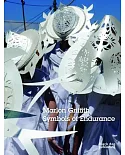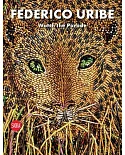I perhaps owe it to flowers, wrote Claude Monet (18401926), that I became a painter. One of the leading figures of the Impressionist movement and perhaps the most celebrated landscape painter
of his age, Monet dedicated his life to capturing the subtleties of the natural world. Trees willows enveloped in the eerie mists of the Seine, palm trees beneath the bright Mediterranean sun
or poplars heavily laden with snow became a significant motif in his work, and he used them to experiment with an extraordinary variety of tones and colours. Ralph Skeas account is split into
five main chapters, each focusing on a different theme: Monets earliest drawings and paintings of trees; his atmospheric use of rivers and coastlines, from the English Channel to the Italian
Riviera; the fields, farmlands and orchards of France; parks and gardens in both the city and the countryside, including his series of paintings featuring trees reflected in his water-lily
pond; and his muted depictions of trees in winter. The result is a succint and highly accessible exploration of some of the best-loved landscapes in art.





















